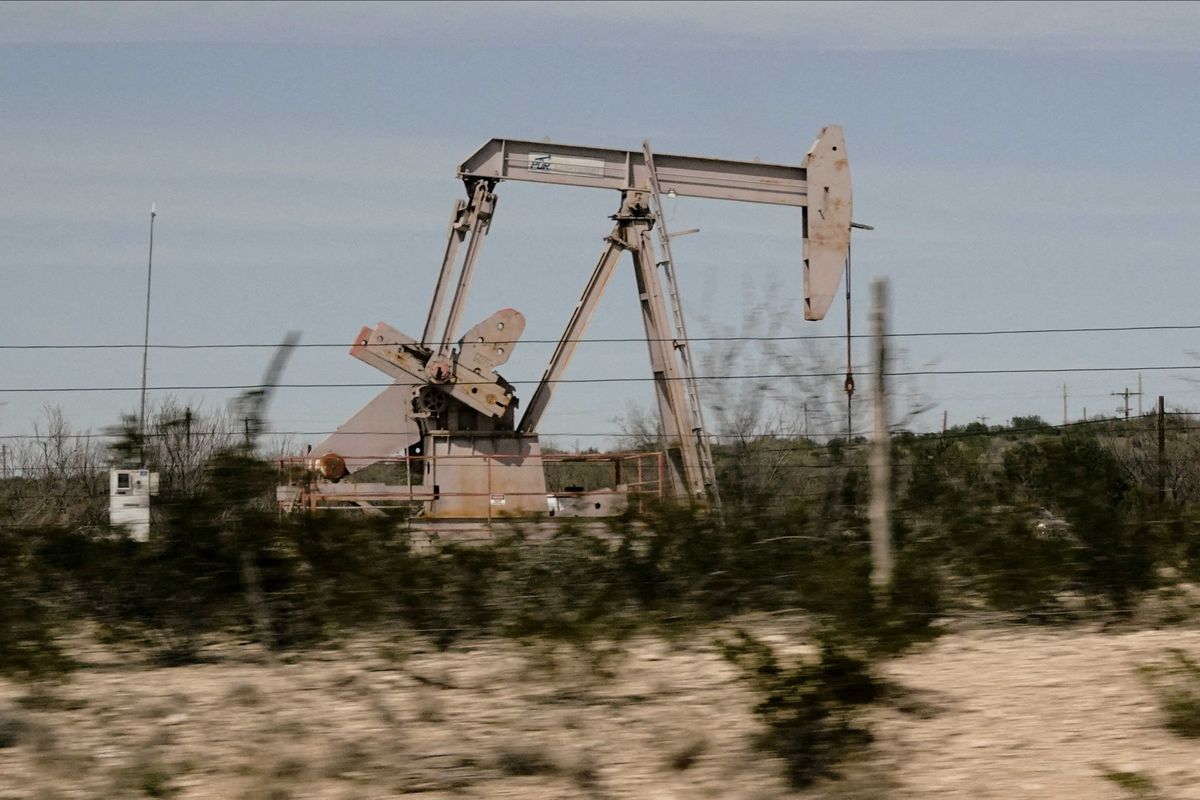
With less than a month until the next United Nations climate summit, filmmakers and campaigners on Tuesday released an animation that calls out the fossil fuel industry’s use of Big Tobacco’s public relations tactics in under three minutes.
The Well-Oiled Plan was created by Daniel Bird and Adam Levy at Wit & Wisdom, in association with the Global Climate and Health Alliance (GCHA), a consortium of over 200 health professional and civil society groups. It “comprises scenes spun off from My Pet Footprint,” a comedy feature film about climate grief that Wit & Wisdom is developing with Greenpeace.
“My Pet Footprint plays with the idea that consciences are removable,” Bird, the director, said in a statement. “Decades ago, the fossil fuel industry decided business as usual was worth any price, and it takes an incredible deficit of conscience to be able to do that when that price is the demise of civilization and possibly even life in general.”
With the new short, he said, “we took a direct route from smoking as an evil perpetuated on individuals, and the nascent public relations industry around that, to smoking as an industrial process imposed upon the global population. The only difference now is that the PR machine has become all the more sophisticated, and, dare we say it, successful.”
The short film—starring comedians Cody Dahler and Michael Spicer, and actors Jaylah Moore-Ross and Sinead Phelps—comes as Big Oil has faced mounting scrutiny for its decades of burying, denying, and downplaying the impacts of its products. Since the #ExxonKnew exposés a decade ago, more journalism, scholarly research, lawsuits against the fossil fuel industry, and congressional reports and hearings have further revealed major polluters’ climate disinformation efforts.
In 2020, Fossil Free Media launched Clean Creatives, a project targeting public relations and advertising agencies that serve Big Oil. Since then, 2,700 creatives and 1,500 agencies have signed the campaign’s pledge to decline future contracts with the industry. Despite that progress, polluters continue to dump money into PR and ads from firms that will work for them.
“Fossil fuels are making people sick—and the companies behind them are spending millions on advertising and PR to cover it up,” said Shweta Narayan, campaign lead at GCHA—which last month released a report detailing “the health toll of fossil fuels” for at every stage of the production cycle and across the human lifespan.
“The PR and communications industry must commit to fossil-free contracts,” she argued. “Firms cannot claim to advance sustainability while helping fossil fuel companies greenwash their image or delay climate policy. We call on agencies to adopt fossil-free policies, disclose all fossil fuel clients, and ensure their work does not obstruct the transition to clean, healthy energy systems.”
“We call on agencies to adopt fossil-free policies, disclose all fossil fuel clients, and ensure their work does not obstruct the transition to clean, healthy energy systems.”
Narayan noted that “the same PR firms spreading fossil fuel disinformation are also working with health organizations—a clear conflict of interest for health. Through the Break the Fossil Influence—Fossil-Free Health Communications commitment, health organizations are leading by example, by cutting ties with those agencies.”
Clean Creatives executive director Duncan Meisel stressed that “health organizations should not be hiring agencies with fossil fuel clients.”
“The fossil fuel industry is one of the leading causes of long-term illness and premature death worldwide, and agencies that help sell coal, oil, or gas products have a conflict of interest when it comes to organizations and companies that promote public health,” he continued. “At the same time, the public health sector has enormous leverage to use their procurement policies to accelerate the marketing industry’s exit from fossil fuels.”
Hundreds of organizations, including GCHA, are also calling on Brazil, host of the upcoming UN Climate Change Conference (COP30), to “make clear that unchecked corporate influence is not compatible with climate leadership.”
GCHA executive director Jeni Miller on Tuesday urged the United Nations Framework Convention on Climate Change (UNFCCC) “to draw a red line” and declare that “no PR or advertising firms that continue to work for fossil fuel companies should be allowed to shape the story of the COP or the climate crisis.”
“For all future COPs, governments and the UNFCCC must adopt clear conflict-of-interest rules and ethical procurement standards for all communications, PR, and event contractors—just as the World Health Organization does under its tobacco control framework,” she said. “Just as the health community once stood up to Big Tobacco and its advertising, now it’s time to stand up to Big Oil.”




